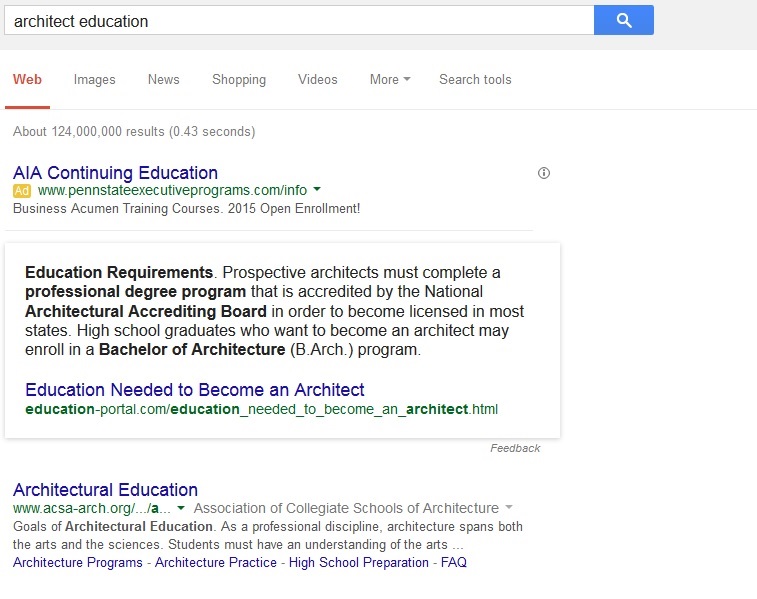How Converting Ads Aren’t Always The Best Ones For The Job
Most of the time, the job of a Pay-per-Click person is to write an ad for searchers looking to buy a product or sign up for a service. The hardest part is making sure you have the right negatives, you’re paying an acceptable cost-per-click, and your pages are converting.
For users, the draw of a search engine is to find the answer to a question. Only 10% of the queries on the Internet, at least of the search queries that are easily discernible, are commercial queries. A commercial queries is one where the user is clearly looking to do business. Another 10% are navigational queries, where the user is looking for a particular site. The last 80% of the queries on the Internet are informational queries. These are queries where the user is not looking for business; they are looking for an understanding of something. Trying to force users further down your sales funnel is unlikely to net you much success.
What’s An Advertiser Supposed To Do?
Informational queries are heavily under monetized, despite the fact that most informational clicks are considerably cheaper than commercial queries.. In serving up an ad and landing page that properly answers the users’ questions, you as an advertiser can gain a clear advantage. First, you’re in front of the user before the competition. Second, you’re establishing authority in a subject. This is the opportunity to build your pipeline of leads for later.
How Do You Achieve This?
For starters, you’ll want to identify your broadest keywords. These are often one or two word keywords. A a great example would be DIY and how-to terms. Since the intent of the user is very difficult to ascertain, any ad written to try to sell the user will receive a very low click-through-rate. Thus, the keywords will also receive a poor Quality Score. On the other hand, trying to help answer potential user questions would be ideal. It might also pique a users’ interests that were not interested in doing business previously.
There is another reason good reason to write the ads in this manner. There are plenty of searches in which no ads appear. While the Quality Scores of many keywords targeting informational queries may be low, there is also the factor of ad relevancy. The best recommendation I have is to write the ad copy more like the organic listings that are appearing on the queries, along with a Call-to-Action. The screenshot below shows an example of a query with only one ad at the top (there was another ad beneath the organic listings that I cropped).
“Want to find out more about New York mortgages? Learn More!” That’s just a start, but it’s certainly a good one. “Learn More” or “Find Out More often get higher click-through-rates on informational queries. By itself, it doesn’t really put the user’s focus on converting. There’s another couple steps you’ll need to go through to get there.
Converting Users At The “Top of the Sales Funnel”
You still need to discuss your landing page. A nice picture, bullet points, trust logos, and form aren’t going to do it for you. Your ad promised the user that they are going to learn more about ‘X’, and that’s exactly what the landing page is going to have to do. A short FAQ or description is a nice start. You might throw in a white paper and an email signup form for more information. You need to begin an email process to get the user more interested in your service/product in general. Even if the users aren’t ready to start receiving information follow-ups, retargeting these visitors is a perfect method of continuing to remind them until they are ready to decide.
As a last note, it should be emphasized that the option for the user to convert should still be provided. If you’re not asking for the money, you’re not likely to get it.
In Conclusion
A quick search of a few queries should make it clear how few advertisers are actually handling these properly. There are so many opportunities to gain the extra edge out there, and in most of these cases the opportunities are very inexpensive. Google AdWords is practically begging you to be there.
Now, go make some money!
